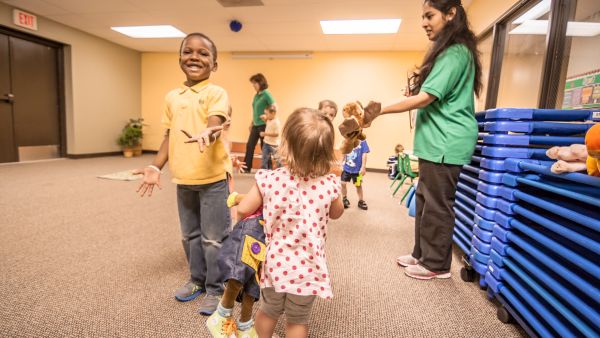
Depending on classroom size and grade, teachers may be in charge of tens to hundreds of students every day. Yet every teacher knows that effective communication with the parents of those children is vital, especially when behavioral or academic issues arise. Similarly, every parent knows that working effectively with their child’s learning professional can make a world of difference when it comes to academic and social development.
So how can parents and teachers work together to forge a stronger partnership?
Provide Complete Contact Information And Preferences
At the beginning of the school year, parents are showered in forms. At least one of them will be a contact-information form for the school and/or teacher. Make sure you fill it out as completely as possible, including cell, work, and home phones as well as favored email addresses. Also include information about how you prefer to be contacted, such as by phone, email, or text, and the best times to reach you.
Similarly, note how your child’s teacher prefers to be contacted. Since they’re in the classroom most of the day, they may block out certain times when they can’t receive phone calls or answer emails immediately. They may set up an hour in the late afternoon when you can reach them via phone. They may prefer, for non-emergency issues, to receive notices by notes in a child’s folder.
By taking each other’s preferences in mind, you can avoid the frustration of late emails or delayed return calls.
Prepare For Student Teacher Conferences
For students who aren’t exhibiting learning disabilities, behavioral issues, or other concerns that require additional testing, professional intervention, or more in-depth communication between home and classroom, the student teacher conferences may be the longest formal face-to-face meetings you will have with your child’s teacher. Your teacher will likely have a portfolio of their work to share with you as well as any positives and concerns.
This is your opportunity to vocalize some of your observations or worries, whether they are academic, behavioral, or social. Make a list so that you don’t forget anything. Also, be sure to ask the teacher how you can support her efforts at home. Encouraging good reading habits is always a great idea, but your child’s teacher, as a learning specialist, may have some neat tricks and tips.
Keep An Open Mind
As parents, our first instinct is to protect our kids. When your child comes home complaining about a “mean” teacher, how you react matters. Ask yourself whether your child is reacting due to academic difficulties or frustration with the classroom rules. Put in a call to the teacher to ask in an honest, neutral, and non-confrontational way if there’s an issue of concern. Communication is vital, and this is a great way to teach your child an important lesson: A good judge listens to both sides before coming to a conclusion.
Volunteer At The School
Every school has different rules about the extent of parent volunteering. Some allow parents to help serve lunch, others encourage parents as playground monitors, and certain co-ops actually require parents to put in time in the classroom. Because many of these volunteer activities happen either during the school day or, in the case of fundraisers, outside it, this is not the time to talk to your child’s teacher about specific
issues. But it is a way to get to know the people who watch over your children for a large part of the day and gain a greater appreciation of what it takes to manage an active classroom. Teachers greatly appreciate the help and parents get a glimpse of their child’s ever-more-independent life.
Communicate And Follow Up
The key to a great teacher-parent relationship is communication. Pay attention to what the teacher suggests at the parent-teacher conferences and then implement those suggestions at home. If they’re not working, ask for advice. Since you know your child best, don’t be shy to suggest tricks and techniques that have worked at home, such as chore charts or particular discipline techniques that work better than others.
Most of all, let the teacher know if you’ve seen positive advancements in academics and behavior. They’ve dedicated their lives to teaching, and that is their most loved reward.





